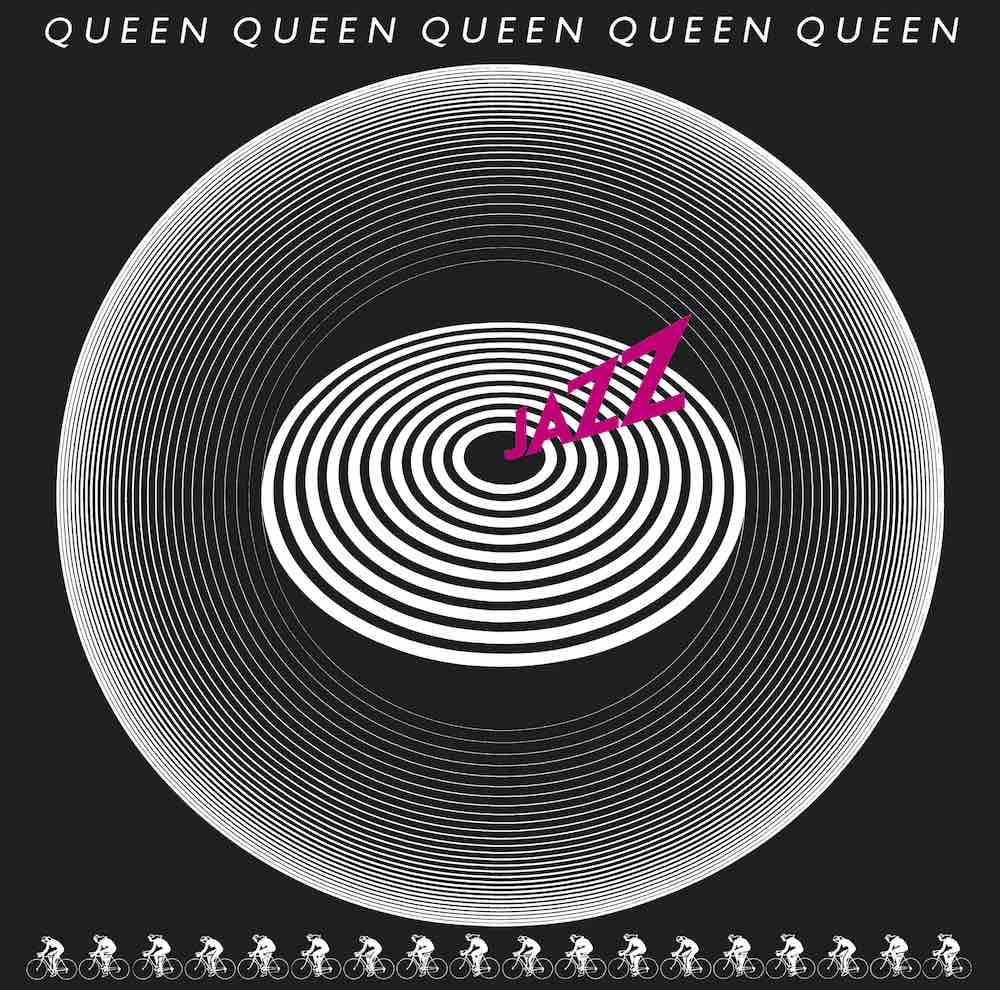
Jazz...46 Years On
“It brought us a lot of flak, but it’s a piece of fun. It was meant to be very complimentary, I mean, that’s the way I certainly felt about it.” Brian May on Fat Bottomed Girls
Queen's seventh studio album was the first to be recorded outside of the UK. Sessions for Jazz began at Mountain Studios in Switzerland, in July 1978, and later moved to Super Bear Studios in Nice, France, concluding in October. Producer Roy Thomas Baker had been absent on the previous two LPs, but for this project, the team was reunited - though it would prove to be the last Queen/Baker production. Geoff Workman and John Etchells were the engineers.
Once again the finished album was very different to anything before. The change of scenery in terms of recording studios gave rise to a fresh exuberant sounding album and once again a richly diverse range of songs - 13 no less! This period saw the emergence of several tracks that would go on to become not only significant international hits but great favourites among the fans and staples of the Queen live show for the remainder of the 1970s and well into the 80s.
The unusual front/back cover concept was suggested by Roger, who had seen a similar design painted on the Berlin Wall some months earlier. The finished cover raised more than a few eyebrows at the time, as it was a significant departure from previous Queen albums and seemed to have little relevance to the album's title. The inside gatefold illustration was that of a wide-angle photograph of the band taken at the Montreux recording studios during the sessions by one of the band's roadies, while the inner sleeve photograph was instead taken at Super Bear Studios in France by Chris Hopper.
Queen took the unusual step here of including a large poster inside the album – a now infamous poster - featuring a bevy of beautiful naked girls (models recruited from various agencies) riding bicycles around Wimbledon Stadium in London in their very own 'bicycle race' with a difference! The event had been staged with the promotion of both the album and Bicycle Race / Fat Bottomed Girls single (released a month earlier) in mind. The poster, like the Bicycle Race video, would prove to be controversial in many territories around the world, leading to accusations of sexism and blatant exploitation.
Although photographs from the unforgettable Wimbledon bike race featured in newspapers of the time, the poster was deemed too risqué for the American public and instead of making it part of the LP package, as it was everywhere else, Elektra Records avoided offending retailers by instead including a coupon with which people could apply for their free poster. Further caution was necessary for the Bicycle Race / Fat Bottomed Girls single picture sleeves, not just in the U.S., but in all territories, with the offending girl racer suddenly sporting painted-on pink underwear, even though she was cycling away from the camera. Elektra American even went a stage further by adding a bra, thus inadvertently creating various rare picture sleeves for eager fans to track down – even all these years later!
As with previous albums, Jazz offered a varied mixture of song styles, reflecting a frenetic period in the band's songwriting. Queen had returned to a 'back to basics' feel for the previous album, but for this, in new surroundings and with the assistance of Roy Thomas Baker, they experimented again and explored an even wider range of musical avenues, just as they had on the earliest albums.
Jazz was released in the UK on 10th November 1978 and four days later in America.
Click here to buy Jazz merchandise and vinyl in the Official QueenOnline Store.
